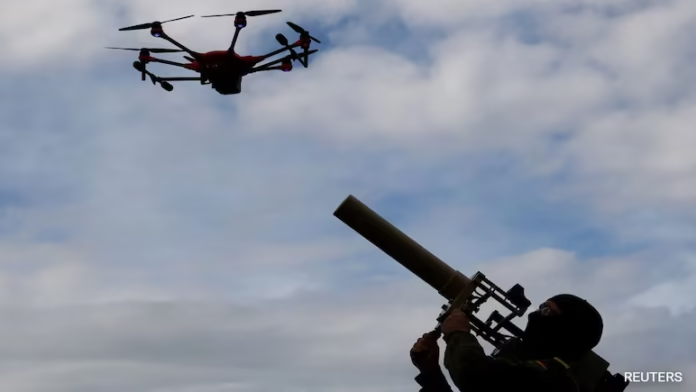
Bulgaria’s Minister of Defense, Atanas Zapryanov, has confirmed that the much-discussed “drone wall” remains primarily a political concept, with no fully developed operational framework in place. Speaking at a parliamentary defense committee hearing, Zapryanov described the initiative as a “system of systems” still under conceptual discussion among EU and NATO partners.
According to Zapryanov, there is currently no standardized approach within NATO or the European Union to effectively counter the growing spectrum of drone threats. “This is not a single device or solution,” he noted, stressing that the initiative requires extensive coordination and integration across multiple defense systems and technologies.
Bulgaria, he said, is actively participating in discussions about the “drone wall” and plans to reinforce its existing capabilities through both national resources and EU-funded initiatives.
The project may benefit from European grant funding aimed at enhancing cross-border defense, while Bulgarian defense companies are expected to play a growing role in developing counter-drone technologies for the European market.
Zapryanov added that Bulgaria intends to draw from Ukraine’s experience in drone warfare to improve its domestic defense strategies. Four types of Bulgarian anti-drone systems are currently under preparation, highlighting the country’s effort to strengthen its technological contribution within NATO and EU defense networks.
Turning to another matter, Zapryanov addressed concerns about a recent technical issue involving Bulgaria’s F-16 aircraft. He revealed that early warning signs of a fuel leak had been noticed during previous flights, but time was lost as technicians repeatedly disassembled the fuel system. The issue is now being resolved, with Lockheed Martin covering the repair costs under warranty.
Despite these developments, the Defense Minister reiterated that no single technological solution can address all drone-related threats. “Creating a functional and efficient drone wall will demand collective participation from all allies,” he said, underlining the political nature of the current discussions.
In light of recent drone incursions into Polish and Romanian airspace amid Russian strikes on Ukraine, Zapryanov confirmed that Bulgaria has introduced additional preventive measures to strengthen airspace surveillance in the country’s northeast.
The Ministry of Defense is also in active negotiations with allied nations to enhance Bulgaria’s air defense network. Future cooperation with the European Union and NATO, he emphasized, will remain essential for the gradual realization of the drone defense initiative.
While the “drone wall” may not yet be a tangible reality, Bulgaria’s commitment to technological advancement, regional coordination, and allied cooperation underscores its evolving role within Europe’s collective defense framework.
